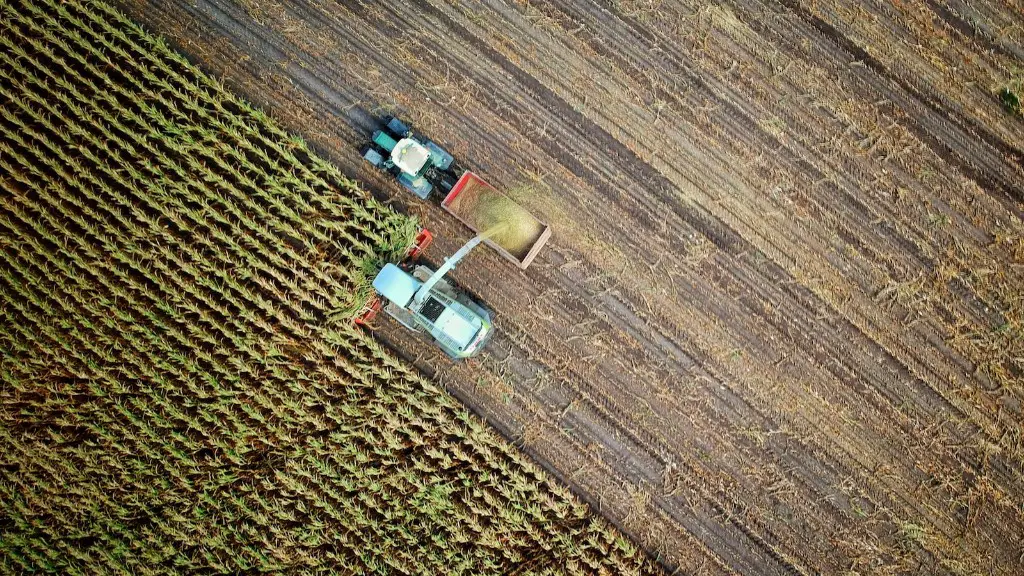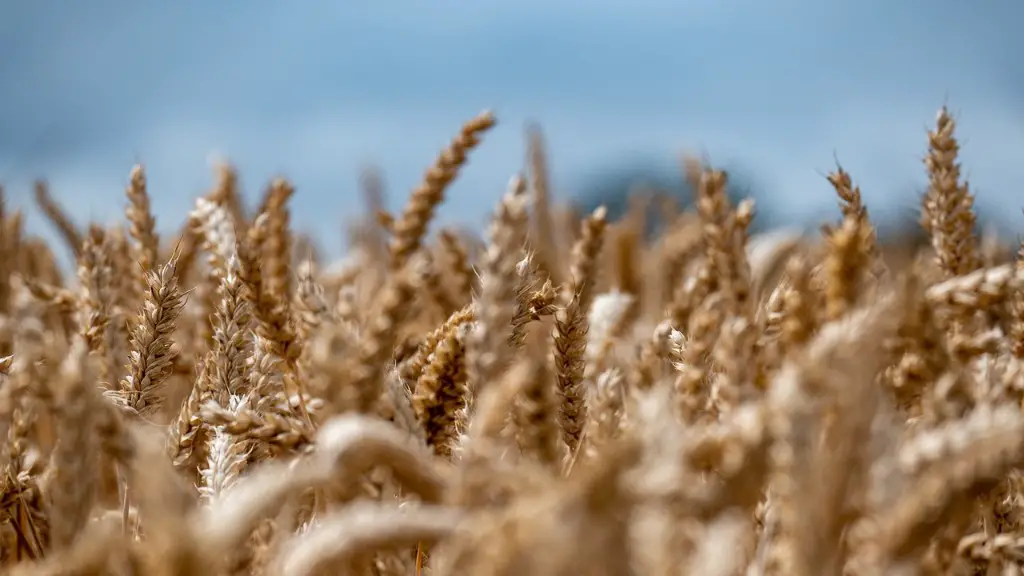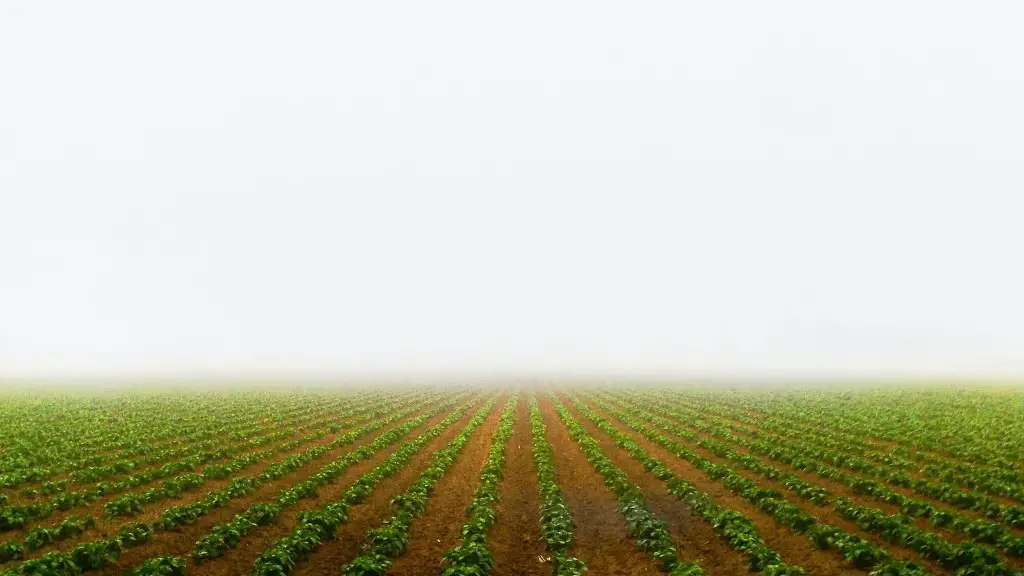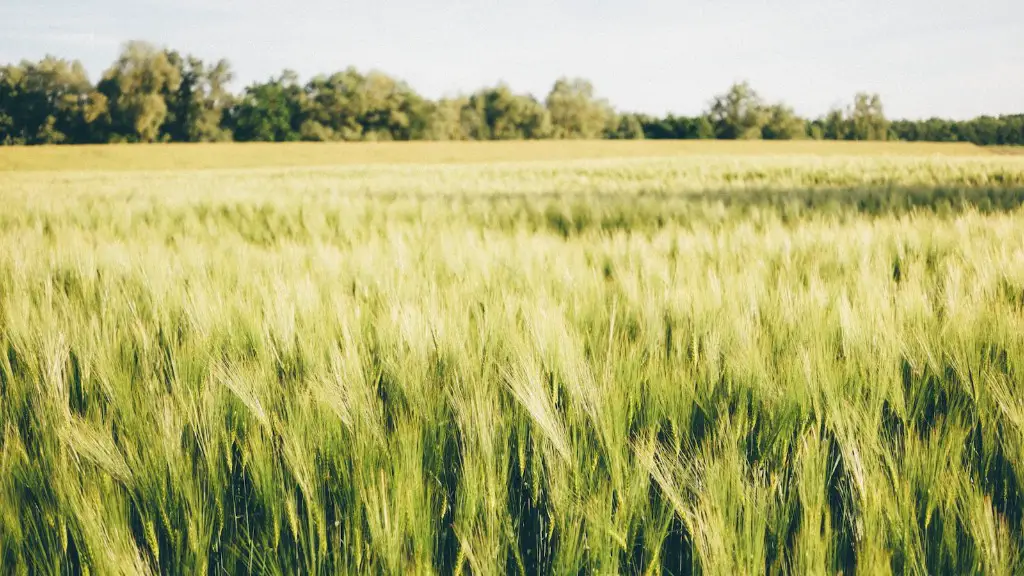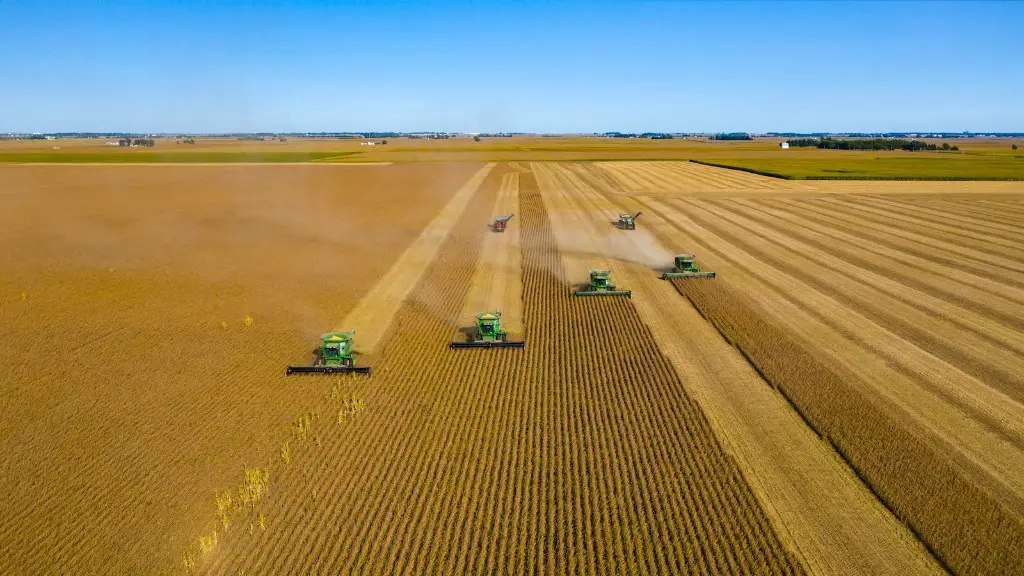Agriculture is an important industry in Jamaica that provides much of the population with food and employment. Jamaica is considered to have a predominantly agricultural economy, and its agricultural system is diverse and well developed. The country has a great diversity of climates and soils, enabling it to produce a wide variety of agricultural products.
Jamaica’s agricultural sector plays a significant role in the national economy, providing jobs to over one million people and contributing over 11 percent of the country’s gross domestic product (GDP). The sector is highly specialized, with four main crops dominating production: sugar cane, bananas, coconuts, and coffee. These crops are mainly produced for export, with bananas and sugar cane being the two biggest export earners for the country.
In addition to export-oriented crops, Jamaica’s agricultural sector also produces a variety of other crops, including rice, corn, sweet potatoes, and root crops such as cassava and yams. The country also has a thriving livestock sector that produces meat, dairy, and poultry products. Jamaica’s agricultural sector has been able to maintain its productivity despite unfavorable weather conditions, thanks to sound government policies and technological advances.
The government of Jamaica has implemented several measures to boost productivity in the agricultural sector. These measures include creation of agricultural development boards and marketing boards, promotion of agricultural education and research, provision of farm credit and other subsidies, and implementation of land reform policies. In addition, the government has provided support to farmers by giving access to international markets and providing modern inputs such as improved seeds and fertilizer.
Jamaica’s agricultural sector has experienced significant growth in the recent years and is projected to continue to expand in the coming years. The country’s favorable climate and rich soils have enabled it to have a thriving agricultural sector, and the government’s support for the sector has made a great impact. Jamaica is quickly becoming an agricultural powerhouse, and it is expected to be an important global player in the near future.
Role of the Jamaican Climate in Agriculture
Jamaica has a greatly varied climate with the temperature range among its regions and even within the country. Typically, the temperature at sea level is between 18 to 33 degrees Celsius. However, the temperature can differ in the mountainous and higher terrain areas. This difference in temperature is mainly due to the effects of the northeast trade winds and mountainous terrain. These winds cause a change in temperature with elevation, with the temperature increases with an increase in elevation.
The climate in Jamaica is also greatly influenced by rainfall. The main season in Jamaica is the wet season, which is from May to October, followed by the dry season, which runs from November to April. The country has two distinct wet seasons. The first is dry-summer season, which runs from July to September, followed by the wet season, which runs from October to April.
The type of climate found in Jamaica is ideal for many crops to prosper. For instance, tropical fruits such as Coconuts, Mangoes and Papaya can easily adapt to this type of climate, making them widely cultivated across the country. Also, temperate crops, such as Coffee and Sugar cane, are grown in this region and are widely exported, along with their produce.
The climate in Jamaica also provides an excellent environment to promote the growth of Hardwood trees and Bananas, which are commonly found in the forests and groves of the island. This is because the wet season brings a slight decrease in temperature, which makes the climate more favourable for these certain plants to grow, which in turn contributes to the agricultural production in Jamaica.
In conclusion, the climate of Jamaica plays a key role in agricultural production. With its ideal temperatures, rainfalls and elevation, Jamaica has the perfect conditions for many crops to thrive and for agricultural produce to be of high quality. The combination of the climate and an ideal terrain has greatly helped to boost the agricultural sector in Jamaica.
Benefits of Improving Agricultural Practices
Improving agricultural practices in Jamaica has many benefits for the country. It is important to note that modern agricultural practices can enable farmers to produce quality products with increased yields. Improved yields involve methods of cultivation, improved fertilizer management, and appropriate choice of seeds, to mention a few.
Improving agricultural practices is beneficial in the following ways: it increases productivity, helps improve food security, and creates employment opportunities. Improved agricultural practices involve the adoption of integrated farming systems, which include the cultivation of multiple crops and livestock. This benefits the country in multiple ways, as it increases the availability of food, improves its nutrition, and ensures economic sustainability.
In addition, improved agricultural practices also help reduce environmental degradation. Adopting Integrated Farming Systems encourages farmers to use their land more effectively and efficiently, resulting in the reduction of the amount of fertilizers and other chemicals used. This reduces the risk of soil and water contamination, which can be potentially hazardous to human health.
Furthermore, improved agricultural practices can also help create employment opportunities. This is especially important in rural areas, where employment opportunities are scarce. Improved agricultural practices such as the introduction of modern inputs and improved management techniques will help to create more job opportunities for the rural population.
In conclusion, improving agricultural practices in Jamaica can help to improve the country’s economic situation and well-being. Improved agricultural practices enable farmers to achieve high yields and better quality products, while also reducing environmental degradation and creating employment opportunities. These benefits make it easy to see why improved agricultural practices should be an important priority for Jamaica.
Challenges of Jamaican Agriculture
Despite being an agricultural powerhouse, Jamaica also faces many challenges when it comes to its agricultural sector. These challenges range from limited access to finance and agricultural inputs, to limited access to technology, to environmental concerns. These challenges could be hindering Jamaica’s agricultural production and are important for the country to address.
One of the main challenges faced by Jamaica’s agricultural sector is limited access to finance and agricultural inputs. Farmers in Jamaica are often not able to access the necessary resources needed to increase their production, leading to lower yields. The government of Jamaica has addressed this issue by providing farmers with loans, subsidies, and other financial assistance. However, a more comprehensive solution needs to be put into place.
Another challenge faced by Jamaica’s agricultural sector is limited access to technology. Technology can be very useful in increasing the efficiency and productivity of Jamaica’s agricultural sector. However, the lack of advanced technology in the agricultural sector has been hindering its growth and development. The government of Jamaica has been working to address this issue through various initiatives, such as the establishment of a technology, innovation and skills development hub and the introduction of new technologies to help improve the productivity and efficiency of the sector.
Finally, environmental concerns are also a major challenge facing Jamaica’s agricultural sector. The improper use of chemical inputs and over-farming have resulted in soil fertility decline, leaching of nutrients, and the contamination of water sources. This is leading to the degradation of the environment, and is hindering the agricultural sector’s growth. The government of Jamaica has been putting in place initiatives to address this issue, such as the adoption of Integrated Farming Systems and the implementation of agricultural conservation policies.
In conclusion, Jamaica’s agricultural sector is facing many challenges that need to be addressed. These challenges range from limited access to finance and agricultural input, to limited access to technology, to environmental concerns. The government of Jamaica has been addressing these issues through various initiatives, but more needs to be done in order to ensure the sustainable growth and development of the sector.
Agricultural Policies of Jamaica
The Jamaican government has introduced a number of policies and programmes designed to further the development of the agricultural sector of the country. These policies and programmes are designed to help improve productivity and ensure that the sector is able to generate wealth for the country. In this section, we will take a look at some of the main policies and programmes that the Jamaican government has implemented.
First, the Jamaican government has put in place a number of incentives and subsidies to help farmers and other agro-entrepreneurs. These include subsidies for agricultural inputs and mechanization, credit support, and tax incentives. The objective of these policies is to encourage increased production and help increase farmers’ incomes.
Second, the government has also adopted a number of policies and programmes to help improve access to technology and modernize the sector. This includes the establishment of the Ministry of Agriculture, Science and Technology to promote the use of modern technologies in the agricultural sector. In addition, the government has been providing funding for research and development initiatives aimed at improving existing technologies and introducing new ones.
Third, the government has also been putting in place policies to help improve the management and efficiency of the sector. This has included the promotion of agricultural insurance and the establishment of agriculture-based industries, as well as the provision of subsidies for agricultural input and equipment purchases. These policies aim to help farmers and other agro-entrepreneurs become more efficient and profitable.
Finally, the government has also been implementing policies to protect and conserve the environment. This includes the implementation of Integrated Farming Systems and the adoption of conservation programs aimed at ensuring that the environment is not compromised by agricultural activities. These policies also aim at promoting the use of sustainable agricultural practices.
In conclusion, the Jamaican government has implemented a number of policies and programmes to help further the development of the agricultural sector. These policies have been designed to help improve productivity and efficiency, increase access to technology, and protect the environment. These policies have helped Jamaica to become an agricultural powerhouse and it is expected that the sector will continue to grow and contribute significantly to the economy in the future.

